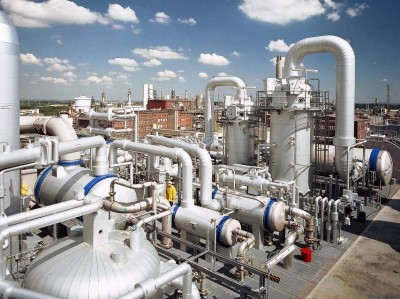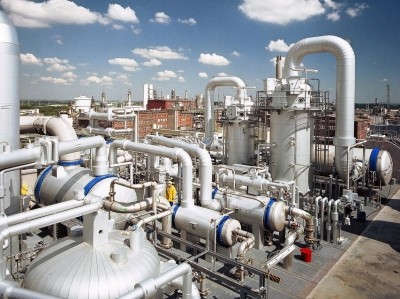BASF releases propionic acid with zero carbon footprint

Produced at BASF’s Ludwigshafen Verbund site, Germany, the chemical giant said it secures zero carbon footprint for those two products by using waste-derived, renewable raw materials via its biomass balance (BMB) model.
In that BMB approach it applies to produce 'PA ZeroPCF', 'NPG ZeroPCF' and also other products, the company incorporates bio-naphtha and biomethane originating from waste or residues at the Verbun site during the very first steps of chemical production.
"For the production of NPG ZeroPCF, BASF additionally uses renewable energies via Renewable Energy Certificates. However, BASF achieves the cradle-to-gate PCF of zero both for PA ZeroPCF and NPG ZeroPCF by using renewable raw materials. The usage of renewable energy is not a prerequisite for achieving the PCF of zero."
‘NPG ZeroPCF’ and ‘PA ZeroPCF’ are ‘drop-in’ solutions, explained the supplier. They are identical in quality and properties to the standard products, allowing customers to use them in their production without the need for adjustments to their existing processes, it added.
The incorporation of such products by end users will help them transition to a circular economy, claims BASF.
Carbon Trust review
The German player outlined how it has achieved carbon neutral certification for the two products from global climate change consultancy, the Carbon Trust - a process, it emphasised, that was not based on the purchase of carbon credits. That certification will be reviewed on an annual basis.
The assessment was cradle-to-grave, taking account of all the greenhouse gas (GHG) emissions that occur up until the product leaves the BASF factory gate, from the extraction of resources through to the manufacturing of precursors to the making of the final chemical product itself.
BASF wants to achieve net zero CO2 emissions by 2050. It claims to be the first large chemical company to make the individual carbon footprints of all its sales products available to its customers.
When asked why PA and NPG were the focus of this process, the spokesperson told us:
"BASF recently calculated the individual carbon footprints for a large part of its portfolio of chemical intermediates. This included propionic acid and NPG, produced on the basis of fossil raw materials. The result of the analysis showed that the PCF of both intermediates is significantly lower than the global average PCF of the corresponding third-party products. Therefore, it was an obvious choice to reduce the carbon footprint to zero by using renewable raw materials in the Verbund production system via BASF's biomass balance approach."
Application
The chemical player is among the leading propionic acid (PA) producers globally, for which there are a range of uses. It can be used as a mold inhibitor for the preservation of food and feed grains. Other application areas for PA include the production of crop protection agents, flavors and fragrances, pharmaceuticals, solvents and thermoplastics.
An essential field of NPG application is powder coatings, especially for the construction and automotive industries as well as for household appliances.








